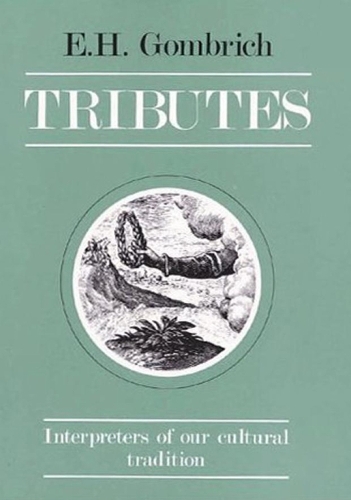
Tributes: Interpreters of our cultural tradition
(Hardback)
Publishing Details
Tributes: Interpreters of our cultural tradition
By (Author) Leonie Gombrich
Phaidon Press Ltd
Phaidon Press Ltd
1st January 1994
United Kingdom
Classifications
General
Non Fiction
306
Physical Properties
Hardback
270
Width 172mm, Height 245mm, Spine 25mm
876g
Description
In this seventh volume of his collected essays, Professor Gombrich pays tribute to a variety of illustrious figures, to whom we owe the ideas and values that are woven into the fabric of our intellectual life. His bicentennial address on the humanities delivered at the American Academy of Arts and Science is followed by in-depth studies of such momentous figures as G E Lessing, G F Hegel, Lord Leverhulme, Sigmund Freud, Aby Warburg and Otto Kurz.
The established author explains that he wanted to introduce such a varied selection of scholars and critics to the non-specialist reader, so as to bring to life the nature and value of branches of learning that are in danger of being squeezed out of higher education. His argument is dynamic and sincere, his writing dextrous and subtle. An essential volume for the scholar and amateur alike, Tributes is a book to which the reader will return, time and time again.Author Bio
Sir Ernst Gombrich was one of the greatest and least conventional art historians of his age, achieving fame and distinction in three separate spheres: as a scholar, as a popularizer of art, and as a pioneer of the application of the psychology of perception to the study of art. His best-known book, The Story of Art - first published 50 years ago and now in its 16nth edition - is one of the most influential books ever written about art. His books further include The Sense of Order (1979) and The Preference for the Primitive (2002), as well as a total of 11 volumes of collected essays and reviews.
Gombrich was born in Vienna in 1909 and died in London in November 2001. He came to London in 1936 to work at the Warburg Institute, where he eventually became Director from 1959 until his retirement in 1976. He won numerous international honours, including a knighthood, the Order of Merit and the Goethe, Hegel and Erasmus prizes. Gifted with a powerful mind and prodigious memory, he was also an outstanding communicator, with a clear and forceful prose style. His works are models of good art-historical writing, and reflect his humanism and his deep and abiding concern with the standards and values of our cultural heritage.